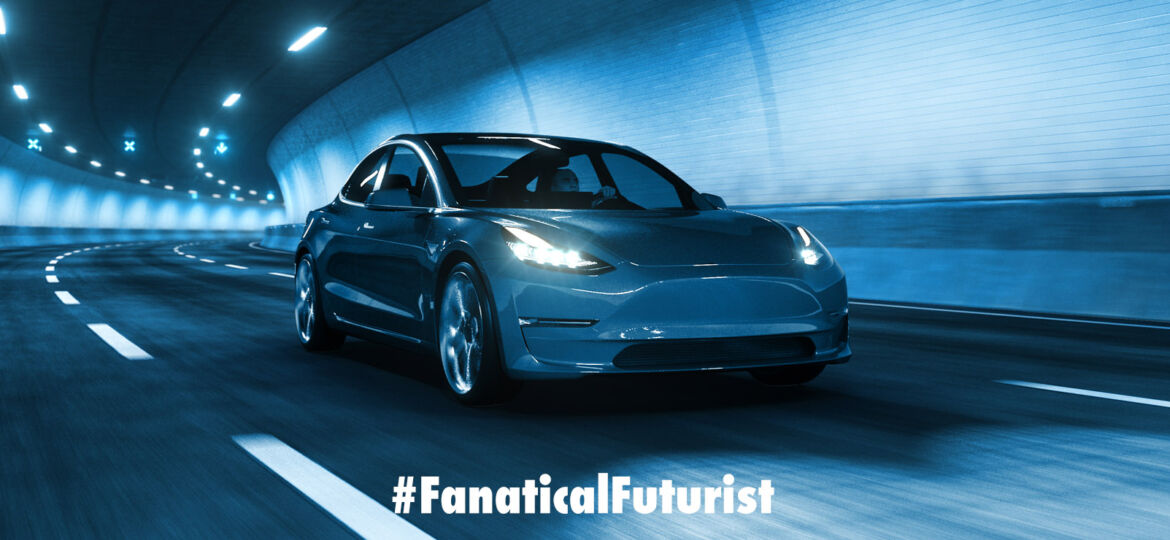
WHY THIS MATTERS IN BRIEF
The more data insurers have about a driver and their habits the more accurate the insurance premiums can be – and Tesla has all the data.
 Love the Exponential Future? Join our XPotential Community, future proof yourself with courses from XPotential University, connect, watch a keynote, or browse my blog.
Love the Exponential Future? Join our XPotential Community, future proof yourself with courses from XPotential University, connect, watch a keynote, or browse my blog.
It’s now nearly two years since Tesla boss Elon Musk announced his company would start offering insurance to its customers at a 20 or even 30 per cent discount to regular insurance – something that he can do because, unlike most of the other motor insurers, Tesla collect and analyse huge volumes of information about drivers and their driving styles. Now, some in the insurance industry are saying this is the start of a trend of car makers becoming insurers.
The result, they say, could be devastating for traditional insurers, who simply have nothing like the level of data about their customers that Tesla and other car makers do. It’s the same disadvantage brick-and-mortar retailers have against the likes of Amazon: an often fatal lack of customer information.
Traditionally insurance has been a very blunt instrument. Yes, you can broadly identify high risk groups – young men, if we’re talking about car insurance, or smokers if we’re talking about life insurance – but it’s very difficult to tailor premiums to the precise risk of each individual. Inevitably low-risk customers end up subsidising high-risk customers.
Technology is massively changing this, for all types of insurance. The ability to collect data about your customers continuously, and to use Artificial Intelligence (AI) to analyse that data, is allowing insurance companies to provide much more accurate, up-to-date risk analyses, and to price policies accordingly.
It’s a trend that is fraught with ethical problems, particularly in health and life insurance, as it could allow insurers to monitor the state of your health and ramp up your premium accordingly. For car insurance it may be less controversial – beyond objections to the basic invasion of privacy. If you’re a consistently safe driver, you should be rewarded with a low premium.
For car companies that can be bothered to get into the insurance business, that provides one huge advantage over traditional insurers: they are the ones that have access to all that data.
A company like Tesla can track your driving behaviour in real time and even second by second, and build a risk profile to a level of detail that would have been unimaginable to insurance companies even a few years ago.
In an interview on US TV news network CNBC, Daniel Schreiber, Chief Executive of AI-focused insurer Lemonade, said the traditional motor insurance industry should be worried.
“You think about what Tesla is doing with the connected car… that has profound impact on insurance,” he said. “There’s going to be massive dislocation in this entire sector. And the data implications are profound and they aren’t good for incumbent insurers.”
He said Tesla’s advantage came from the constant stream of live data feeds.
“All of the pricing of insurance until now has had to look at big groups of people in aggregate and price them on average. As soon as you can break apart that average … that monolith … and price people using specific data to them, you have a massive advantage that incumbent insurers don’t like,” he said.
He said safer cars and a potential shrink in car ownership as new models of car use emerge would make things even worse for insurers.
“Over the course of the next decade, if you’re sitting on the board of directors of one of these big incumbents it’s pretty daunting because you’re going to see the total pie shrink. Accidents are going to decline and car ownership may well decline and, in any event, some of those dollars are going to go to businesses insurance fleets… rather than individuals owning them.”
Financial analysts at investment banking giant Morgan Stanley think Schreibe is on to something, and says other car makers are sure to follow suit.
“We expect to see over the near to medium term, with rather few exceptions, that all auto OEMs, not just Tesla, will offer auto insurance services directly to their customers on their connected vehicle platforms,” they said in a note to investors last week.
Furthermore, as more companies build more products that stream real-time data this is a trend that will spread to other sectors as, for example, companies like GE use their massive Internet of Things (IOT) data sets to self-insure their jet engines, or Rolls Royce to self-insure their fleets of autonomous ships. And so on …
So, in summary – insurance companies beware disruption and disintermediation, prepare now, or suffer tomorrow …
















